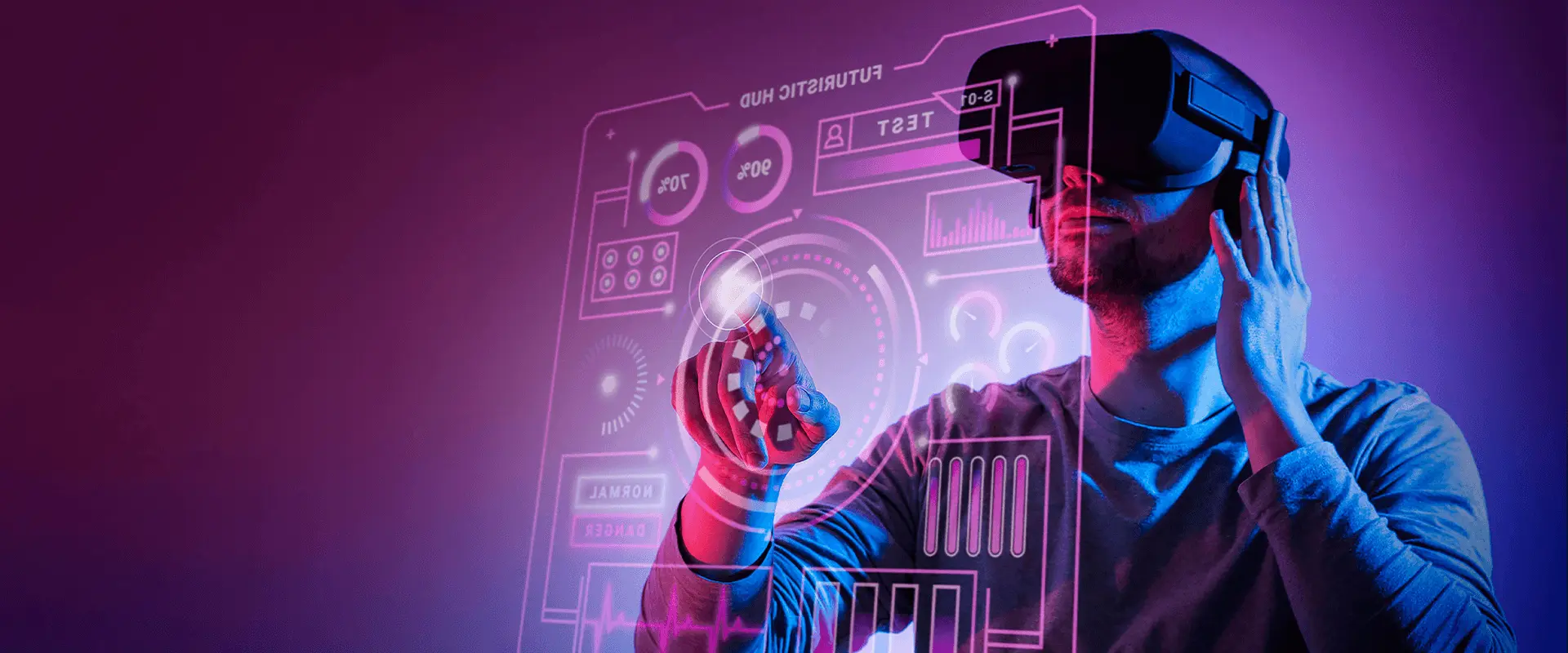The Metaverse has quickly become a topic of conversation for businesses, igniting both excitement and curiosity among stakeholders. Venture capital investors have invested millions into GenAI and Sandbox platforms while other industry titans explore this space.
These technologies can be utilized to increase teleworker collaboration and decrease physical office space requirements; however, if mishandled they could also have detrimental repercussions.
Virtual Reality
Virtual reality (VR), is a form of technology which creates an immersive and realistic digital world experience for its users. VR technology has numerous applications in various industries ranging from healthcare and retail sales to real estate sales and property valuation.
VR has revolutionized our travel and interaction habits. For example, virtual reality (VR) now enables people to attend live concerts even when physically unable to travel there – this was particularly useful during COVID-19’s pandemic when social distancing made meeting up difficult due to travel restrictions and social distancing issues.
VR can have some potential adverse impacts on human health and wellbeing. At the same time, this technology could transform the future of the internet and drive positive societal impacts, so it is vital that businesses integrate VR into business operations while still meeting safety, accessibility, and equality requirements.
Artificial Intelligence
As artificial intelligence (AI) continues its rapid evolution, it holds great potential to transform our universe by speeding download/upload speeds and decreasing latency – leading to personalized content and faster, more reliable online experiences for everyone.
AI is playing a pivotal role in creating lifelike digital humans and NPCs, creating an authentic virtual environment. Furthermore, its natural language processing capabilities are making multilingual access possible – further expanding virtual community diversity while its ability to quickly resolve issues ensures a smooth metaverse experience.
VR trends are driving transformational business applications across industries. For example, architects use virtual reality (VR) to produce detailed 3D blueprints of buildings and automotive engineers conduct precise virtual crash tests with VR. Retail stores use virtual fitting rooms so customers can try on clothes virtually redefining the shopping experience; and AI-powered chatbots streamline marketing, customer service and sales in virtual spaces allowing businesses to increase revenue and engagement while decreasing costs.
Blockchain
VR has already become more than just a means for gaming: It has already been employed for education, simulation and training; exercise, sports and healthcare as well as retail purposes.
VR also helps train personnel for high-risk or specialized roles such as firefighters, medical staff or soldiers. VR has been used extensively in retail to allow customers to try on clothes or decor items before buying, experiment with hair cuts and test eyeglasses prior to making a purchase decision.
The Metaverse offers immersive experiences and digital assets, necessitating high levels of security and decentralization. Blockchain technology is ideal for this task as it ensures each user maintains full ownership and control over their digital assets while providing transparency and security during transactions in the Metaverse, helping prevent fraud or theft. For instance, gamers could sell in-game real estate to another player for cryptocurrency payment, creating new markets for virtual property and art while making Metaversus financially sustainable for individuals.
Distributed Ledger Technology
Virtual reality has come a long way in terms of providing realistic sensory engagement; however, its goal of fully immersive digital environments remains unmet. Still, significant progress has already been made and has immense business applications potential. This study offers several guidelines and directions for speeding up the launch of Metaverse-based businesses; first by looking at state-of-the-art technologies essential for starting Metaverse businesses such as DeFi 2.0 and Centralized Decentralized Finance (CeDeFi).
VR has the potential to revolutionize more than gaming – from entertainment events they would otherwise miss to healthcare services delivered remotely, such as medical treatment remotely through VR. Current healthcare services tend to be costly and inconvenient – using VR could make these more efficient and more accessible; however, cybersickness must first be dealt with before widespread deployment.


